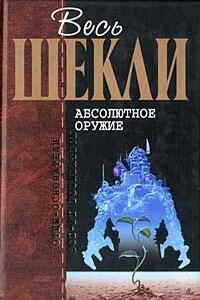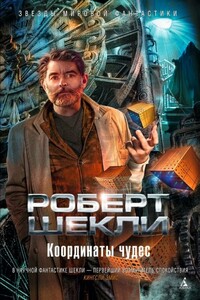| И есть "Ода памяти генерала Китченера", которую я отдам вам за десять долларов. |
| "Is there nothing else?" | - И больше ничего? |
| "Not for you." | - Для вас больше ничего. |
| "WelL.I'll take the thousand dollar item," Lind said. | - Что ж... я согласен на тысячу долларов, - сказал Линд. |
| "Yes, by God, I will! | - Да! |
| Sara is worth every penny of it!" | Сара достойна и большего! |
| "Handsomely said, albeit tardily. | - Красиво сказано, хотя и поздно. |
| Now pay attention. Here it is." | Теперь слушайте внимательно. |
| The Mnemone leaned back, closed his eyes, and began to recite. | Мнемон откинулся назад, закрыл глаза и начал читать. |
| Lind listened, his face tense with concentration. | Линд напряженно слушал. |
| And I also listened, cursing my untrained memory and praying that I would not be ordered from the room. | И я тоже слушал, проклиная свою нетренированную память и молясь, чтобы меня не прогнали из комнаты. |
| It was a long poem, and very strange and beautiful. | Это была длинная поэма, очень странная и красивая. |
| I still possess it all. But what comes most often to my mind are the lines | Она все еще у меня... |
| Charm'd magic casements, opening on the foam Of perilous seas, in faery lands forlorn. We are men: queer beasts with strange appetites. | Мы - люди. Необычные животные с необычными влечениями. Откуда в нас духовная жажда? |
| Who would have imagined us to possess a thirst for the ineffable? What was the hunger that could lead a man to exchange three bushels of corn for a single saying of the Gnostics? | Какой голод заставляет человека обменивать три бушеля пшеницы на поэтическую строфу? |
| To feast on the spiritual-this seems to be what men must do; but who could have imagined it of us? | Для существа духовного это естественно, но кто мог ожидать этого от нас? |
| Who would have thought us sufferers of malnutrition because we had no Plato? | Кто мог представить, что нам недостает Платона? |
| Can a man grow sickly from lack of Plutarch, or die from an Aristotle deficiency? | Может ли человек занемочь от отсутствия Плутарха, умереть от незнания Аристотеля? |
| I cannot deny it. | Не стану отрицать. |
| I myself have seen the results of abruptly withdrawing an addict from Strindberg. | Я сам видел, как человека отрывали от Стриндберга. |
| Our past is a necessary part of us, and to take away that part is to mutilate us irreparably. | Прошлое - частица нас самих, и уничтожить эту частицу значит поломать что-то и в нас. |
| I know a man who achieved courage only after he was told of Epaminondas, and a woman who became beautiful only after she heard of Aphrodite. | Я знаю мужчину, обретшего смелость только после того, как он услышал об Эпаминонде, и женщину, ставшую красавицей после того, как она услышала про Афродиту. |
| The Mnemone had a natural enemy in our schoolteacher, Mr. Vich, who taught the authorized version of all things. | У Мнемона был естественный враг в лице нашего учителя, мистера Ваха, учившего всему по утвержденной программе. |
| The Mnemone also had an enemy in Father Dulces, who ministered to our spiritual needs in the Universal Patriotic Church of America. | И еще был враг - отец Дульсес, заботившийся о наших духовных потребностях в лоне Всеобщей Американской Патриотической Церкви. |
| The Mnemone defied both of our authorities. | Мнемон пренебрегал этими авторитетами. |
| He told us that many of the things they taught us were false, both in content and in ascription, or were perversions of famous sayings, rephrased to say the opposite of the original author's intention. The Mnemone struck at the very foundations of our civilization when he denied the validity of the following sayings: -Most men lead lives of quiet aspiration. -The unexamined life is most worth living. -Know thyself within approved limits. | Он говорил нам, что многое, чему они учат, ложно. Он утверждал, что они извращают смысл знаменитых высказываний, придавая им противоположное значение. |
| We listened to the Mnemone, we considered what he told us. | Мы слушали его, мы размышляли над его словами. |
| Slowly, painfully, we began to think again, to reason, to examine things for ourselves. | Медленно, болезненно, мы начали думать. |



